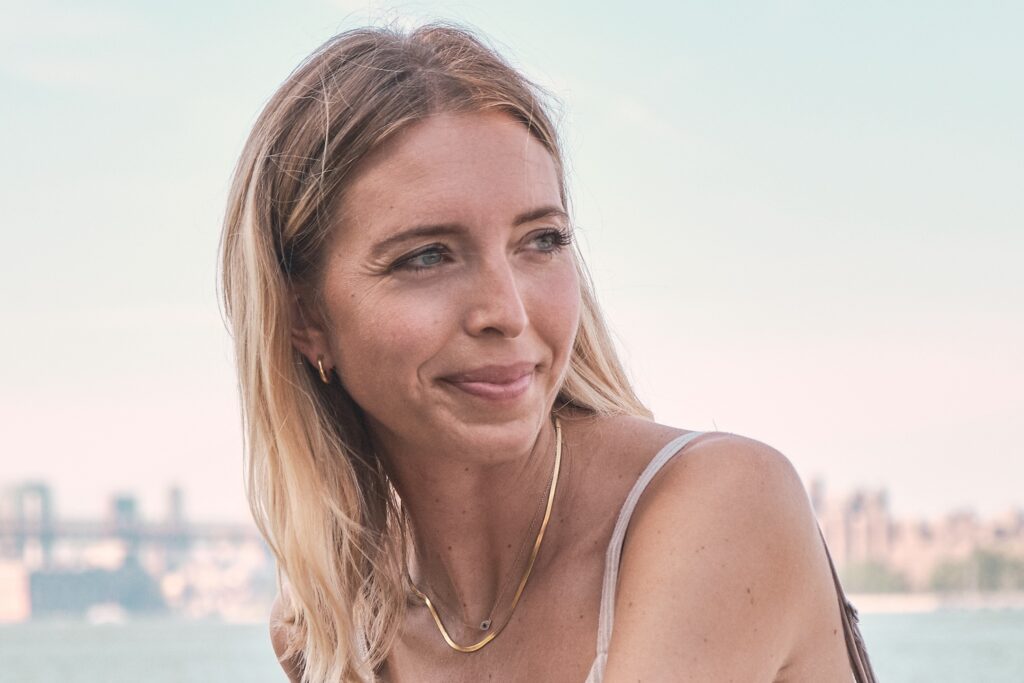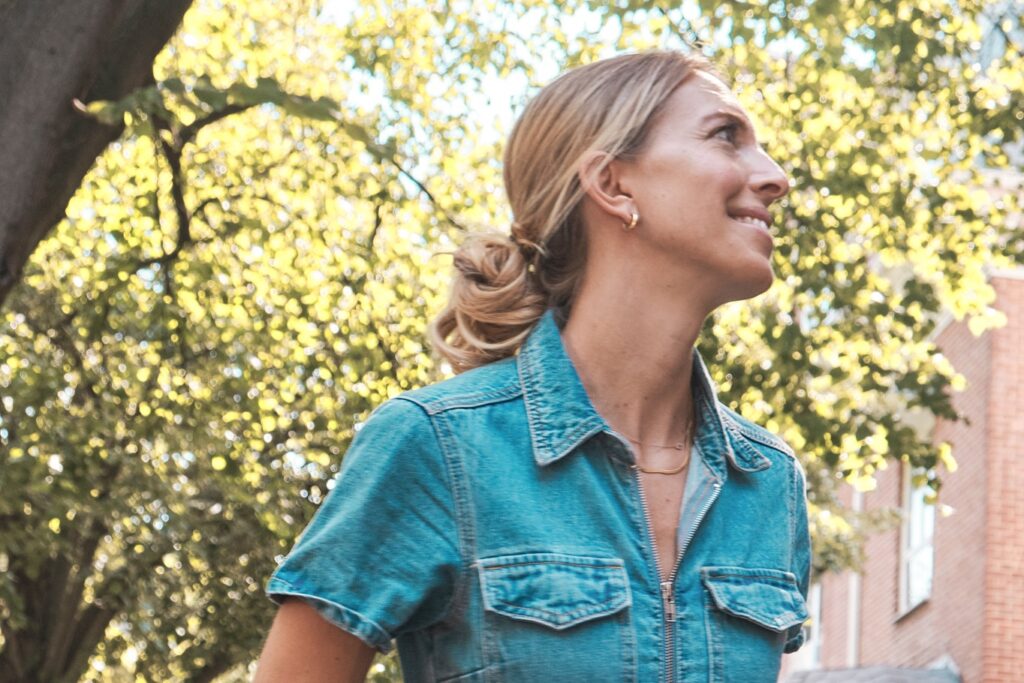Alice Katter is an independent Program Director, Culture and Community Consultant who is reimagining a life-centred future of work. She infuses deep cultural insights and people-centred design to rethink work environments both within and beyond the workspace.
From running a strategy and brand studio in Vienna to her transformative experience at Dropbox during the pandemic, Alice's journey reflects a commitment to designing work that fosters creativity, connection and equity. She has since launched the Out of Office Network, a research and design lab, and published a book Reimagining the Nature of Work.
The Now Work recently collaborated with Alice on a project for a global sports brand, helping the sustainability team to develop its collective mission and to establish generative ways of working with the rest of the businesses. We loved her perspective on teamwork for sustainability, and her commitment to putting work and culture at the heart of delivering on big sustainability ambitions.
For those considering freelancing or just starting out, Alice offers invaluable advice, highlighting the importance of building a support network and cultivating a sense of community to navigate the challenges and opportunities of freelance work.

When did you start freelancing for sustainability?
I’ve been independent for over 9 years, but throughout that time, I went through many different variations, seasons, and models of work.
While I was living in Vienna, I ran a small strategy and brand studio and a creative co-working space, working with startups as well as a contractor with Red Bull for more than 4 years.
When I moved to NYC, I started out working freelance in some agencies until I began working with Dropbox, who I worked with for almost 2 years. My time at Dropbox shifted my focus from brand/marketing to building internal community and designing how we work and how people engage and connect at work. This shift occurred when Covid hit, and Dropbox decided to become a Virtual First company. We put a team together dedicated to intentionally designing how we could create more enlightened, humane, and equitable ways of working, making work spark joy and creative energy.
This is what ignited my passion for the Future of Work and how we might design work to be regenerative – nourishing, inspiring, and connecting rather than making us feel burnt out, depleted, and disconnected.
For the past 5 years, I’ve worked on Work Culture & Community Design, consulting clients, designing and running community/people-oriented programs, and running a research & design lab called Out of Office, dedicated to reimagining the way we work and live in the modern world.
Where do you work right now?
One of my favorite questions to answer, if you have some time! After living in NYC, I went fully remote for almost 2 years, investigating life in Mexico, California, Italy, and Barcelona, to name a few. Now, my husband and I have our base in London while working and living globally.
Over the past years, I’ve worked literally from anywhere: planes, trains, many cafes, libraries, hotel lobbies, and more.
Currently, I’m exploring the workspaces of London. Some favorites include Wellcome Collection, an open library and museum, a handful of cafes in Hackney (including Batch Baby), and I just signed up for a co-working space and cafe called DeBeauvoir Block, which has an open co-working cafe and a silent co-working space with phone booths.
What issues are you most fired up about tackling?
I’m currently most interested in the needs for this new era of work we’re stepping into. On one hand, I’m excited about new models of work that allow freedom and flexibility for the different rhythms and seasons of work and life for people and organizations, as well as new forms of collective intelligence that organizations can tap into – having a wider network of people they can access and collaborate with.
On the other hand, I’m deeply interested in the new tools, rituals, norms, and social infrastructures that will be needed for this new era of post-9-5 and traditional in-office work. We’re currently going through a major shift in how we work, caused by a shift in the role work plays in our lives and distributed work having been made available to the masses during Covid.
As we’re in the midst of this transition, there are a lot of new challenges I’m observing. While flexibility and autonomy boost job satisfaction and well-being, the rituals (or lack of them) of WFH can quickly devolve into isolation and a lack of novelty by limiting the range of experiences that people have access to on a daily basis.
We’re now in a phase where we need to reimagine how we work, as well as what new tools and social infrastructures we need, that work used to provide us. With Out of Office, we recently launched an OOO Uniform – a tool and merch collection serving as an ice breaker for a generation of modern workers, working from coffee shops and other third spaces.
As an evolution of that, we’re also looking for what people need nearer to where they live. We’re now going beyond the body, into the surrounding space, exploring the needs for coffee shops and communal workspaces to better understand how we can shape new necessary "Post-Office spaces" that aren’t currently ideal for co-working or connection, and how we can bridge belonging to a global network while engaging locally.
How are you using your strengths and skills to change the world?
I see myself as a curator of people and ideas. I love to dive into research and pick up signals in the world and am lucky to have an amazing network of people who are keen on seeing similar change in the world. So on one hand, with my consulting work, cultural insights, research, and people-centered design, I shape culture and community within and beyond the workplace. And on the other hand, with Out of Office, we are working on pushing the industry forward and creating new paths and the tools needed to create a new future of life-centered working and living.

What brings you the most joy when it comes to having a flexible career?
The ability to work with people from all over the world, as well as the flexibility to travel, explore new places, and make daily life feel a little bit like vacation every day. I believe work is only one part of our lives, and having a flexible career allows me to put life first and build my work around that.
What's the biggest challenge when it comes to freelancing in sustainability?
Freelancing isn’t easy. Especially right now, times are tough. Many companies are saving costs on human potential, so as a freelancer, you’re always dependent on the market and the shifting priorities companies invest in.
On the other hand, unless you’re working with a team, which I luckily mostly do, freelancing can get lonely and overwhelming. Having to figure everything out by yourself, from taxes to getting new clients to going through adjustments in your life to everything else – I honestly believe freelancers are the most adaptable and resilient workforce. We constantly experience divergent viewpoints, dive into a new project or team in no time, understand a new challenge, and switch topics and industries. I do feel freelancers deserve more credit for that and should be more celebrated by organizations for that.
Is there a project that you’re most proud of?
During my time working with the Kyu Collective, we created an amazing network-wide gathering, bringing people from over what were at that time 12 companies with more than 3000 employees together in a three-day experience. Individuals across different companies who had never met before collaborated on workshops and sessions they co-hosted, and within a short timeframe, we set up a magical experience that made the Kyu Collective feel like one big community. The knowledge that was shared within those 3 days was just incredible, showcasing the collective intelligence of this amazing group of companies. And that feeling, of people connecting over shared interests and getting to know people they would have otherwise never met within the network, was so powerful. As a result of one of the sessions, we then created the Future of Work Signals report, sharing the insights and burning questions from practitioners across the Kyu companies. Bringing an artifact to life after that was a powerful manifestation of that collective knowledge and a fun way to continue the collaboration beyond the conference.
What’s your advice to someone who’s thinking of taking the plunge into freelance or freelancers just starting out?
Build yourself a support network that you can reach out to easily. Freelancing is tough, and there are so many things to figure out and understand. The way freelance is typically set up is you being a sole-preneur. But as humans, we’re not made for individualism. We’re built for connection and community. Going freelance unfortunately often creates a gap in connection with others, whether that’s because we think we can’t ask others all our questions or see others as competitors. But it’s so much better together. Build yourself a small group of people who are your co-creators or, as my friend Matt Sim suggests, create an Advisory Board for yourself. You start by compiling your own personal board, just like an organization would have, made up of people you deem “specialists” in the areas most important to you. When you ask someone to join your board, which is a great way to give you permission to talk to them on a regular basis, do so with the understanding that they will provide you with their most honest feedback and advice.
